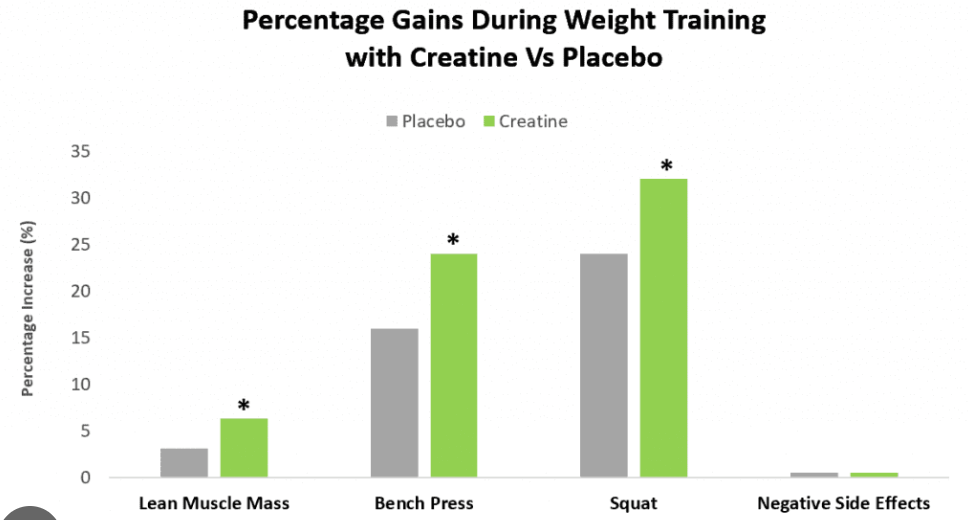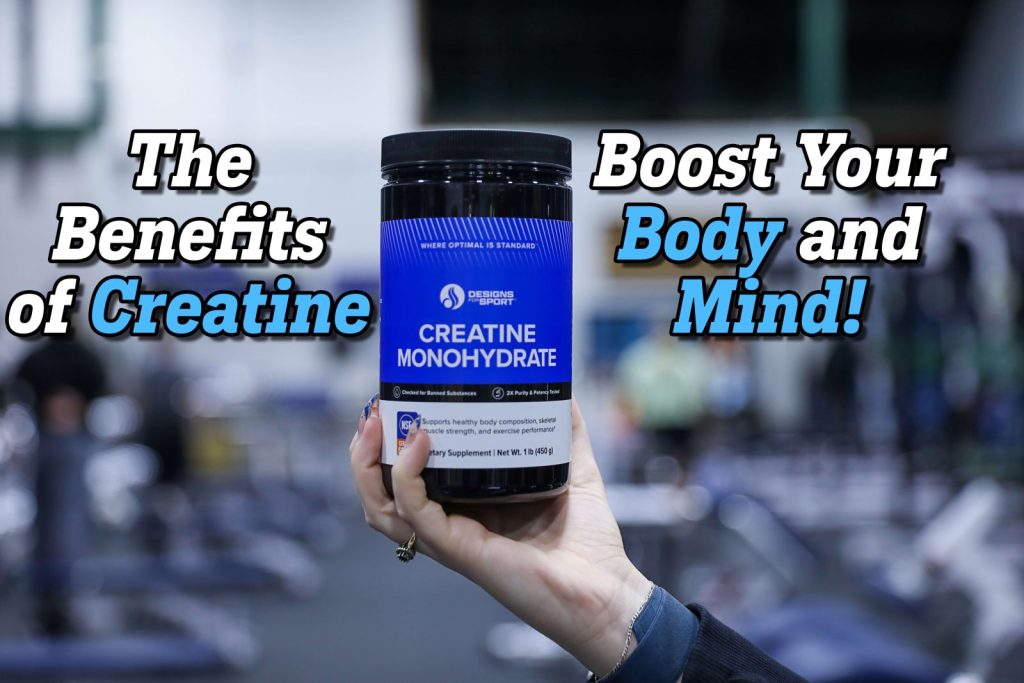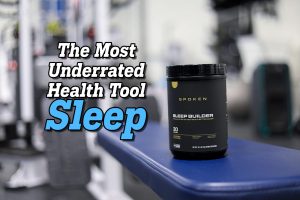Creatine is one of the most widely researched and popular supplements on the market, celebrated for its ability to enhance muscle growth, improve athletic performance, and improve cognitive function. While many associate creatine primarily with bodybuilding, recent research suggests its potential extends beyond muscle growth and sports performance. So if you’d like to know how adding creatine to your daily routine can benefit you, keep reading!
The Basics
Let’s start with the basics. What exactly is creatine and where do we get it from? Well, if you eat meat and fish, you’re already getting creatine in small amounts…good job! Not to get too sciency on you, but the body synthesizes creatine from amino acids (a.k.a protein), storing the majority of it in the muscles as phosphocreatine. This stored phosphocreatine is a rapid energy source for cells, particularly muscle cells, during short bursts of intense activity like strength training.
If you recall back to your high school biology days (I know it’s been a while for some), you may remember hearing something about ATP (adenosine triphosphate). You can think of ATP as your body’s “energy currency.” Unfortunately, ATP is rapidly depleted during high intensity efforts, which can limit performance. Supplementing with creatine increases phosphocreatine stores, allowing for more rapid ATP production. More ATP = more energy = more results!
Boost Your Body
Creatine’s ability to improve muscle strength and power is one of its most well-known benefits. By increasing the phosphocreatine stores in muscles, it helps you perform at higher intensities for longer. Studies show that creatine supplementation can lead to a 5–15% increase in strength and performance while training. To put it simply, creatine allows you to crank out a few more reps than you would normally be able to do. Those extra reps lead to more strength and muscle gains over the long-haul.
In addition to helping the muscles grow, creatine helps the muscles expand by what’s known as “cell volumization.” This is the process where water is drawn into the cell causing it to expand. This cell expansion promotes cellular processes associated with muscle growth.
Creatine isn’t just about enhancing workout performance; it’s also a powerful tool for recovery. Research shows that creatine supplementation can reduce muscle damage and inflammation, leading to less post-workout soreness and faster recovery times. By supporting muscle repair and minimizing inflammation, creatine allows you to bounce back more quickly between sessions, enabling more consistent and effective training.
Boost Your Mind
Okay, so those are a few of the ways that creatine can help you in the gym. But what if you’re not interested in getting “yoked”, as the kids say? Well, this is where things get really interesting!
The brain, like muscles, relies on ATP for energy, especially during mentally demanding tasks. Recent studies suggest that creatine supplementation can improve memory, increase mental endurance, and potentially help protect against neurological diseases. Research also suggests that creatine can improve mood, reduce fatigue, and increase cognitive performance, particularly in high-stress situations. This is due to its ability to support ATP levels, which can protect nerve cells from damage and improve function.
There are a lot of myths out there about creatine being potentially unsafe, especially for long-term use. I am happy to report that these myths are just that, myths. Creatine is one of, if not the, most studied and safest supplements on the market. One of the most common side effects of taking creatine is water retention in the muscles, which if you remember from before, is known as “cell volumization” and it’s a good thing!

Here’s the Plan
Taking creatine is about as easy as putting your pants on in the morning. Also, it is unflavored, so you can easily add it to any beverage. There are two very simple options depending on your situation:
Option 1:
Athletes with only 12 weeks to train – you’re short on time, so we’re going to do a loading phase in order to see the benefits faster:
- Step 1 – Loading phase – 20 g/day divided into 4 doses (4 scoops/day) for the first 7 days.
- Step 2 – Maintenance phase – 5-10 g/day (1-2 scoops/day)
- Workout days – 1 scoop pre-workout, 1 scoop post workout
- Non-workout days – 1 scoop/day
Option 2:
Non-athletes – you typically have a longer training timeline, so a loading phase is not necessary:
- 5 g/day (1 scoop/day) – Timing is not overly important, though consuming creatine around training time has been shown to be beneficial. For convenience, mix a scoop in with your morning greens or with your aminos during training.
- Optional – Add an additional 5 g (1 scoop/day) on training days. This will help to top off your creatine stores.
Creatine is a well-researched supplement with benefits that extend beyond athletic performance. For those looking to boost physical performance, enhance recovery, or support cognitive health, creatine is a convenient, cost-effective, and safe choice that can make a significant impact over time.
Link to the Creatine We Recommend: Designs for Sport
P.S. If you know an athlete or a parent of an athlete who you think could benefit from this article please feel free to forward it to them and share it!
P.S.S If you want to book an Assessment link here – contact form













